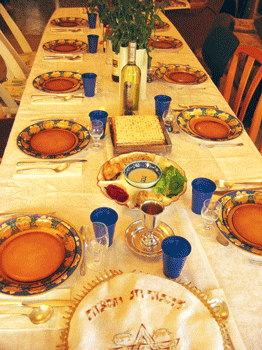
But that weekend saw a synagogue in Colleyville, Texas, held hostage on the Jewish Sabbath. Blessedly, after many tense hours, the incident ended without any loss of innocent life when the rabbi and congregants utilized previously learned security preparedness and response training. Ironically, on that Sabbath, synagogues worldwide were reading the weekly scriptural portion about Moses and God’s miraculous deliverance of the Israelites from ancient Egyptian slavery.
Tragically, houses of worship, schools and all manner of public and private institutions must be concerned with the potential for violent attacks rather than focusing their energies solely on the purposes for which they exist. Some faith traditions, ethnic communities and distinctly identifiable groups may be at more significant risk, but disturbingly, none of us is guaranteed complete security.
We each receive guidance from different sources, which for me means the teachings of the Jewish tradition. The Bible records that the Israelites found themselves trapped at sea with Pharaoh’s army in pursuit when leaving Egypt. An ancient Jewish legend says that Moses prayed for deliverance, but not until a single man waded into the water up to his neck did the sea split for the Israelites to pass through safely.
The Jewish views parallel the saying, “God helps those who help themselves.” Accordingly, Jewish tradition teaches not to rely on miracles, for they are purely gifts from God and not expectations to be ordered on demand, even though sincere prayer and devotion.
There are different opinions regarding appropriate steps in considering possible threats, but again I am guided by my tradition. Firstly, to follow in the footsteps of Moses’ brother Aaron, who Judaism teaches always sought peace and the resolution of discord. Still, it also teaches the legitimacy of self-defense if preventive measures fail. Even deadly force may be used, but only when there is no reasonable alternative, as our tradition teaches, “How do you know your blood is redder than the blood of another?”
And when direct defensive force cannot be avoided, I still learn from another Jewish legend. After the sea collapsed on and drowned Pharaoh’s army, the Israelites sang praises of thanksgiving for their Divine deliverance. In heaven, the angels wanted to join in the songs of praise, but God objected, asking rhetorically, “My handiwork (i.e., the Egyptians) are drowning in the sea, and you recite a song?!”
The Israelites who were saved understandably rejoiced in their relief, but others need to recognize that even while justified, human suffering still occurred.
So, it is customary at the Passover Seder ritual-meal to diminish the symbol of joyous redemption, wine, by removing a drop from our cups for each of the ten plagues suffered by the ancient Egyptians. All human life is always precious.

 How to resolve AdBlock issue?
How to resolve AdBlock issue? 








